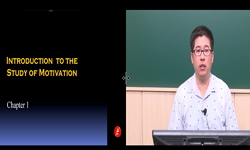Among four functional skills of a language - speaking, listening, reading and writing ? writing is indispensible for learners and the most complex task, especially for teachers who are involved with low-level students. This study, thus, is designed an...
http://chineseinput.net/에서 pinyin(병음)방식으로 중국어를 변환할 수 있습니다.
변환된 중국어를 복사하여 사용하시면 됩니다.
- 中文 을 입력하시려면 zhongwen을 입력하시고 space를누르시면됩니다.
- 北京 을 입력하시려면 beijing을 입력하시고 space를 누르시면 됩니다.
https://www.riss.kr/link?id=A100351891
-
저자
손미정 (경북대학교)
- 발행기관
- 학술지명
- 권호사항
-
발행연도
2015
-
작성언어
Korean
-
주제어
일본어 작문 ; 동기 ; 만족도 ; 수업모형 ; wrting of Japanese ; motivation ; level of satisfaction ; model lesson
-
등재정보
KCI등재
-
자료형태
학술저널
- 발행기관 URL
-
수록면
129-145(17쪽)
- DOI식별코드
- 제공처
-
0
상세조회 -
0
다운로드
부가정보
다국어 초록 (Multilingual Abstract)
密」), learning effect and students’ ‘preference’ and ‘satisfaction’ are critically correlated. Focusing on this point, this study, first, surveys students’ needs and readiness in order to stimulate their motivation and interest in the lessons. Then students are encouraged to choose topics on their own four times. During the lessons, teachers apply appropriate teaching methods depending on the writing themes selected by the students, including teacher-centered correction, peer-responses, and teacher-student conference after peer activities. After each session, questionnaires on students’ level of satisfaction are filled in and collected. To evaluate the effects of the lessons, simple achievement tests are also given. Through these questionnaires and test results, how learners’ satisfaction and motivation affect learning is examined and analyzed. With the result of this analysis, finally, a model lesson is suggested to provide effective writing education for low-level Japanese learners.
Among four functional skills of a language - speaking, listening, reading and writing ? writing is indispensible for learners and the most complex task, especially for teachers who are involved with low-level students. This study, thus, is designed and implemented to improve writing competency of low-level learners of Japanese. According to Kageyama (影山 2011,「ライティング?ワ?クショップの秘
密」), learning effect and students’ ‘preference’ and ‘satisfaction’ are critically correlated. Focusing on this point, this study, first, surveys students’ needs and readiness in order to stimulate their motivation and interest in the lessons. Then students are encouraged to choose topics on their own four times. During the lessons, teachers apply appropriate teaching methods depending on the writing themes selected by the students, including teacher-centered correction, peer-responses, and teacher-student conference after peer activities. After each session, questionnaires on students’ level of satisfaction are filled in and collected. To evaluate the effects of the lessons, simple achievement tests are also given. Through these questionnaires and test results, how learners’ satisfaction and motivation affect learning is examined and analyzed. With the result of this analysis, finally, a model lesson is suggested to provide effective writing education for low-level Japanese learners.
목차 (Table of Contents)
- Abstract
- 1. 머리말
- 2. 연구의 배경과 목적
- 3. 연구 조사개요
- 4. 분석의 결과 및 고찰
- Abstract
- 1. 머리말
- 2. 연구의 배경과 목적
- 3. 연구 조사개요
- 4. 분석의 결과 및 고찰
- 5. 맺음말
- 참고문헌
- REFERENCES
동일학술지(권/호) 다른 논문
-
- 대한일어일문학회
- 金俸呈
- 2015
- KCI등재
-
- 대한일어일문학회
- 권기수
- 2015
- KCI등재
-
- 대한일어일문학회
- 이진연
- 2015
- KCI등재
-
- 대한일어일문학회
- 全成燁
- 2015
- KCI등재





 KCI
KCI DBpia
DBpia






